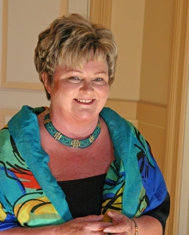 “I am a firm believer in advocacy: there is immense power in role models. There are people who can influence people across boundaries and lend their voice to those who otherwise would not be heard.”
“I am a firm believer in advocacy: there is immense power in role models. There are people who can influence people across boundaries and lend their voice to those who otherwise would not be heard.”
-Birgitta Rantakari
Ms. Birgitta Rantakari is the Director of International Affairs Department at the Helsinki Deaconess Institute (HDI) in Finland. Ms. Rantakari has a wide experience in promoting the human rights of the most marginalized people both in Finland and internationally. For over 40 years, Ms. Rantakari has worked on numerous projects on development cooperation and international affairs. She is passionate about ecumenical work as well as about inter-faith dialogue. Her vision is that the faith communities must work together with the secular actors in order to promote peace. According to her, faith communities should be places of inclusion instead of exclusion. They should be places where all people can feel love and acceptance. In Ms. Rantakari’s opinion, faith communities have a vital role to play when it comes to peace-building.
Ms. Rantakari received her degree in economics from the Helsinki School of Economics and Business Administration. She joined the HDI first as a Personnel Director and later as a Director of Education. The Helsinki Deaconess Institute is a 144-year-old foundation that provides social and health care services as well as education in these fields. The foundation’s operations cover social services, educational programs, development services as well as internal services.
She has a great interest in social issues such as women’s empowerment. In 2007, Ms. Rantakari received an honorary title of Social Counsellor. The title was awarded by the President of the Republic in recognition of Ms. Rantakari’s service to the society both nationally and internationally.
Ms. Rantakari has made a remarkable career in the ecumenical field. Today, as the Director of International Affairs at the HDI, she focuses on strengthening the social work within HDI’s partner organizations in Eastern and Southern Africa. She has developed mechanisms for Nordic cooperation in development cooperation programmes. She has brought together several African Churches to combat HIV and AIDS within the CUAHA network (Churches United against HIV and AIDS).
Over the years, Ms. Rantakari has held several high-level positions in international ecumenical organizations, including the World Council of Churches. Currently she operates as the Moderator of the Governance Group for the WCC. Her other international experience includes, for example, leading several women’s organizations, such as the NURU Programme in 1994-1998. This education and rehabilitation programme targeted marginalized and poor women and commercial sex workers in Zambia. In 2006-2008 she chaired the HIV & AIDS Working Group for European Union’s Nordic Dimension programme.
In Finland, Ms. Rantakari has chaired the National HIV and AIDS Network. She has worked closely with the Centre for Torture Survivors in Finland. Currently she is actively involved in the international work of the Evangelical Lutheran Church of Finland.
Besides Europe, Ms. Rantakari has lived and worked in Asia and Africa. This combined with her other experience has given her understanding of the grass-root level as well as of top level. According to her, in development cooperation or peace-building we should neither focus on the need of trade, government, civil society nor individual people. Instead, she says, we must try to have a positive influence on all, and build networks and arenas for joint action between different groups.
Defeat is never the last word. There is always hope!
